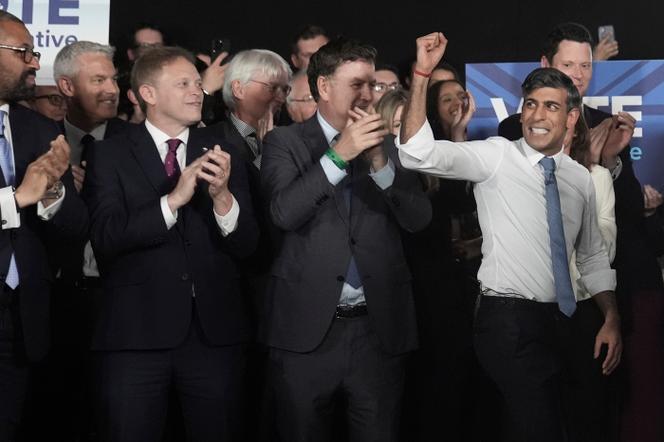


Rumors had been rife for months in the corridors of Westminster: British Prime Minister Rishi Sunak was considering early elections before the final deadline of January 2025.
Elections in summer instead of autumn or winter? Journalists were skeptical, given the Conservatives' 20-point lead over Labour in the polls. The 44-year-old Conservative leader had recently appeared to quell speculation by repeating that elections would be held "in the second half of the year." However, on Wednesday, May 22, Sunak caught everyone off guard, including his own MPs and ministers, by announcing that elections would be held on July 4.
The time has come to choose between the Conservatives "who have a plan" for the country and Labour who don't, claimed the prime minister in a brief speech in front of 10 Downing Street, repeating at least five times, in the pouring rain, that he was ready to take "bold actions," unlike his great rival, Keir Starmer, the leader of the Labour Party. Sunak, who took office in October 2022, stressed that he had "stabilized" the economy and promised to bring "security" to his fellow citizens in an "increasingly dangerous" world with wars in Ukraine and Gaza.
His campaign kick-off didn't start auspiciously: The incumbent leader's voice was partly drowned out by the song "Things Can Only Get Better" by the Northern Irish band D:Ream, played at full volume by a handful of anti-Brexit activists outside the gates of Downing Street. The song is symbolic because it was the anthem of Labour leader Tony Blair's victorious campaign in 1997.
Beyond the failed staging, it was the choice of July 4 that raised eyebrows on Wednesday evening: Why not leave more time to close the gap with Labour? The gamble is risky, if not "complete insanity," judged Rory Stewart, a former Tory minister under Theresa May, and now a renowned commentator on British politics, in a special edition of his podcast with Alastair Campbell, "The Rest is Politics."
Did Sunak think he had enough arguments to claim that the country's economy had "turned a corner," after the Office for National Statistics announced on Wednesday morning that inflation for April had fallen to 2.3% year-on-year, the lowest since 2021? The former chancellor of the Exchequer under Boris Johnson had in fact made slowing price rises – which exceeded 11% in 2023 – one of his main objectives when he arrived at Downing Street.
Did he think that economic figures were unlikely to improve further by the end of the year, with stagnant growth and public debt leaving his government too little room to propose rapid tax cuts? Perhaps. The prospect of an influx of migrants in small boats over the summer, with some 10,000 people having already managed to cross the Channel in makeshift boats since January 1, has probably also weighed in the balance.
You have 65.17% of this article left to read. The rest is for subscribers only.
